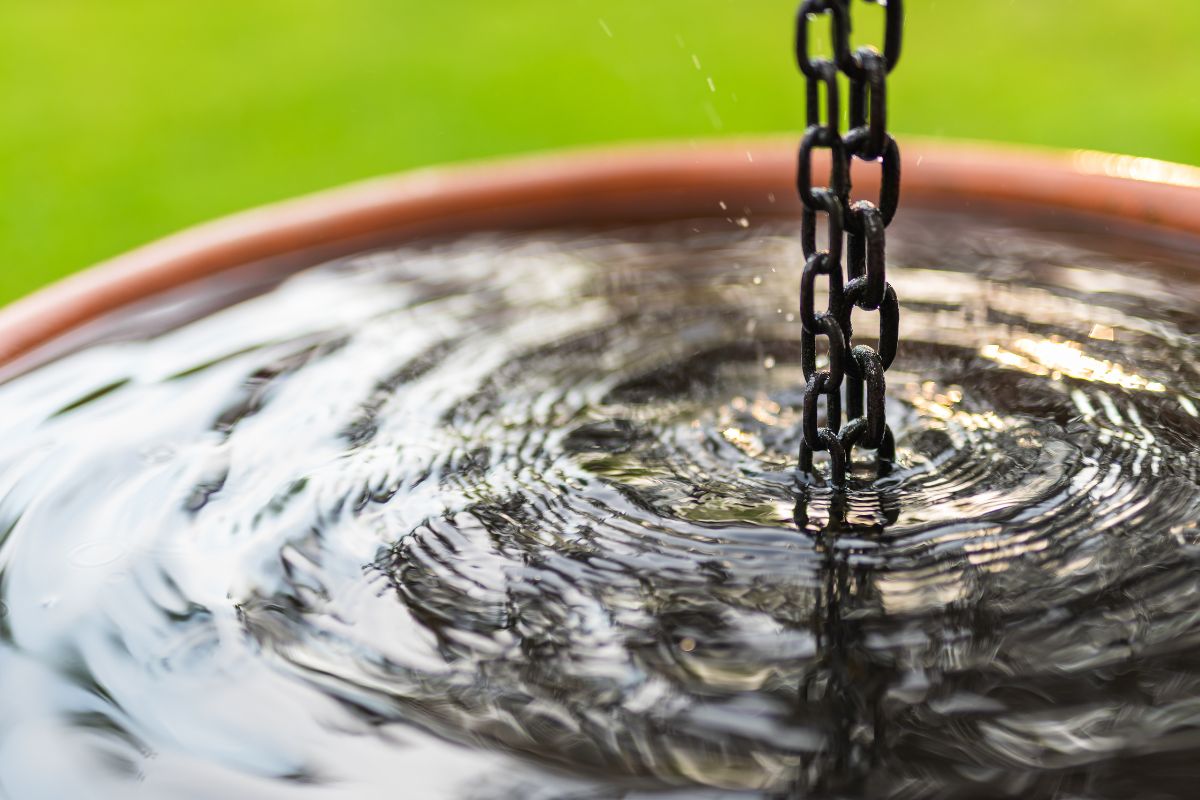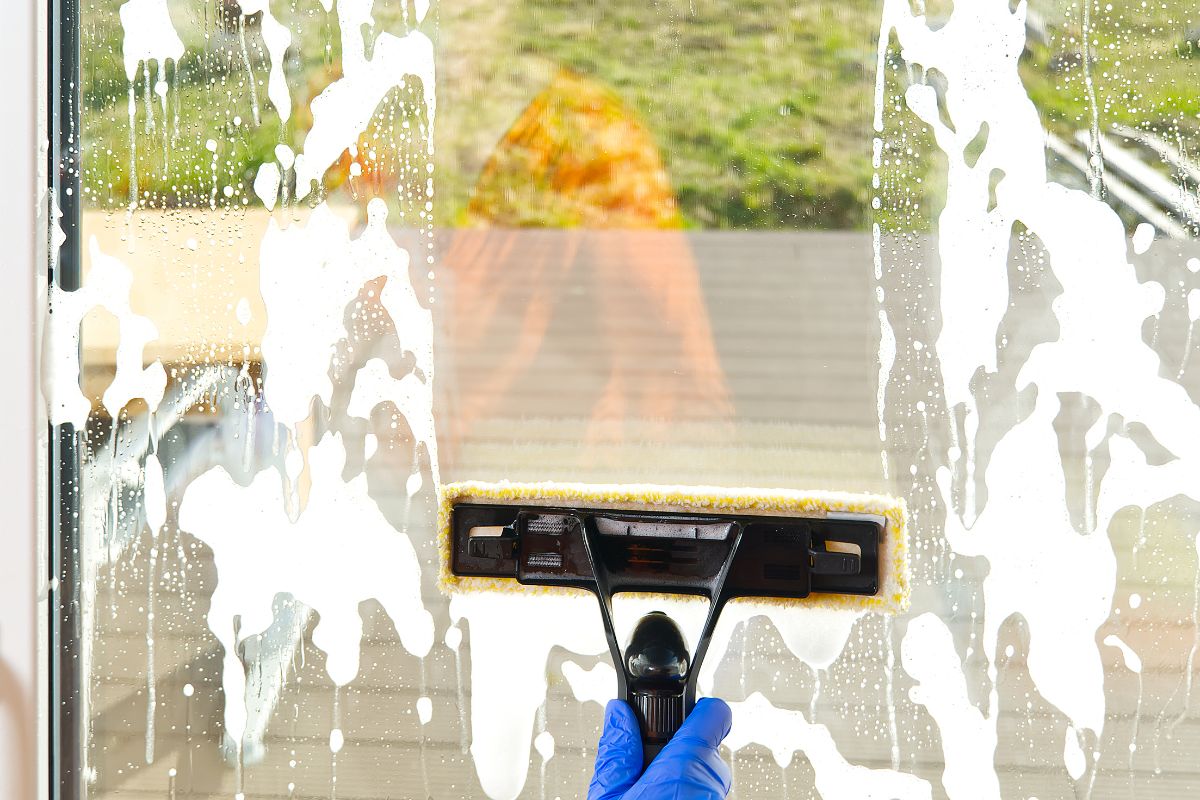
Yes, rainwater can be excellent for cleaning windows! Its natural softness and lack of minerals make it a fantastic, eco-friendly alternative to tap water, often resulting in a streak-free shine.
The Benefits of Using Rainwater for Cleaning Windows
Rainwater offers several advantages when it comes to window cleaning. First and foremost, it’s naturally soft. Unlike tap water, which contains minerals like calcium and magnesium, rainwater is virtually mineral-free. These minerals in tap water can leave unsightly streaks and spots on your windows after drying. Using rainwater eliminates this problem, giving you a cleaner, clearer view.
Additionally, using rainwater is an environmentally responsible choice. By collecting and utilizing rainwater, you reduce your consumption of treated tap water, conserving a valuable resource.
Why Rainwater is Naturally Better Than Tap Water

The key difference lies in the mineral content. Tap water, especially in areas with hard water, is loaded with dissolved minerals. When tap water evaporates from your windows, these minerals are left behind as a residue. Rainwater, on the other hand, is naturally distilled through evaporation and condensation, leaving it pure and free of these contaminants. This purity is what makes it so effective for achieving a streak-free finish.
This guide will walk you through everything you need to know, from collecting rainwater to mastering the perfect cleaning technique.
Potential Drawbacks and Considerations
While rainwater is generally excellent for cleaning, there are a few things to keep in mind. Rainwater can sometimes be slightly acidic, especially in industrialised areas due to atmospheric pollution. This acidity is usually minimal and doesn’t pose a significant threat to your windows, but it’s worth considering.
Another potential concern is contamination. Rainwater collected from roofs can pick up debris, dirt, and even bird droppings. It’s crucial to ensure your collection system is clean and well-maintained to prevent these contaminants from ending up on your windows.
How to Collect Rainwater for Window Cleaning

Setting up a rainwater collection system is surprisingly simple. The most common method involves using a rain barrel connected to your gutter downspout. Choose a food-grade plastic or metal barrel to avoid contaminating the water. Place a screen or filter at the top of the barrel to prevent leaves and debris from entering.
If you have any questions about window cleaning or need professional advice, don’t hesitate to contact us. Our team is always here to help you achieve the best results for your windows!
Step-by-Step Guide to Cleaning Windows with Rainwater
Here’s a simple guide to cleaning your windows with rainwater:
- Collect your rainwater: Ensure your collection container is clean.
- Pre-wash (Optional): If your windows are heavily soiled, pre-wash them with a mild soap and water solution, then rinse with rainwater.
- Apply rainwater: Use a spray bottle to apply rainwater liberally to the window surface.
- Wipe or Squeegee: Use a clean microfiber cloth or a squeegee to remove the water. Overlap each stroke with the squeegee.
- Dry edges: Wipe the edges of the window with a clean, dry cloth.
Tips for Achieving a Streak-Free Shine
To maximize the effectiveness of rainwater cleaning and prevent streaks:
- Use microfiber cloths: These cloths are excellent at absorbing water and removing dirt without leaving lint.
- Perfect your squeegee technique: Overlap each stroke slightly and wipe the squeegee blade clean after each pass.
- Clean on a cloudy day: Direct sunlight can cause the water to evaporate too quickly, leading to streaks.
Need expert window cleaning advice? Call us today we’re here to help!
Addressing Common Concerns and Myths
One common myth is that rainwater is always dirty and unsafe. While it’s true that rainwater can be contaminated, proper collection and filtration can minimize these risks. Another concern is acidity. As mentioned earlier, rainwater can be slightly acidic, but it’s generally not harmful to windows. Regular cleaning with rainwater is unlikely to cause any damage.
Wondering about other water types for window cleaning? Check out our Is Boiled Water Good for Cleaning Windows? to see how it compares!
FAQs About Cleaning Windows with Rainwater
Is rainwater safe to use for cleaning?
Yes, as long as you collect it properly and filter out any debris.
Will rainwater damage my windows?
No, rainwater is gentle and unlikely to damage your windows.
How do I store rainwater for cleaning?
Store it in a clean, sealed container in a cool, dark place to prevent algae growth.
Cleaning your windows with rainwater is a sustainable, cost-effective, and surprisingly effective way to achieve a streak-free shine. By understanding the benefits, addressing potential drawbacks, and following the tips in this guide, you can harness the power of nature to keep your windows sparkling clean. So, next time it rains, consider collecting some water and giving your windows a natural, eco-friendly clean!
Have questions about window cleaning? Call us our team is ready to assist you!
